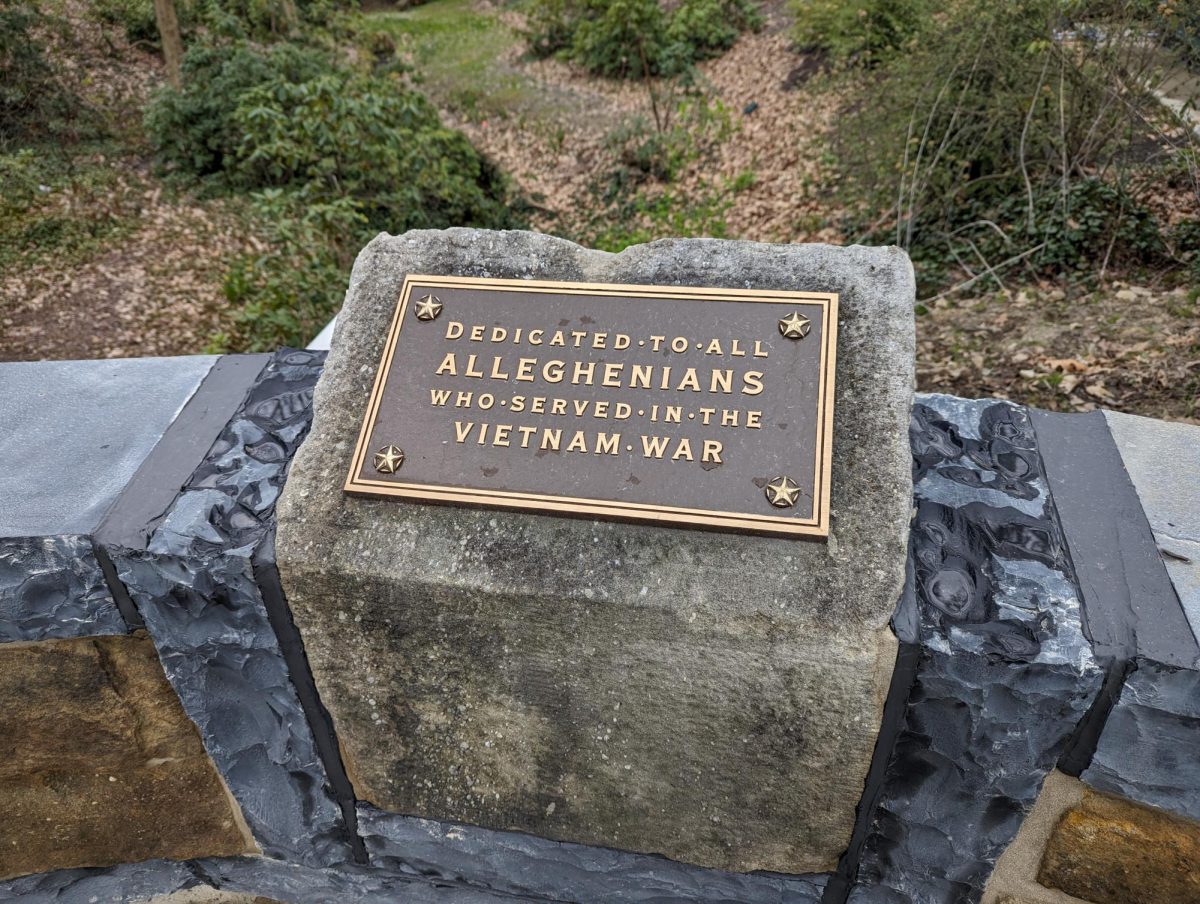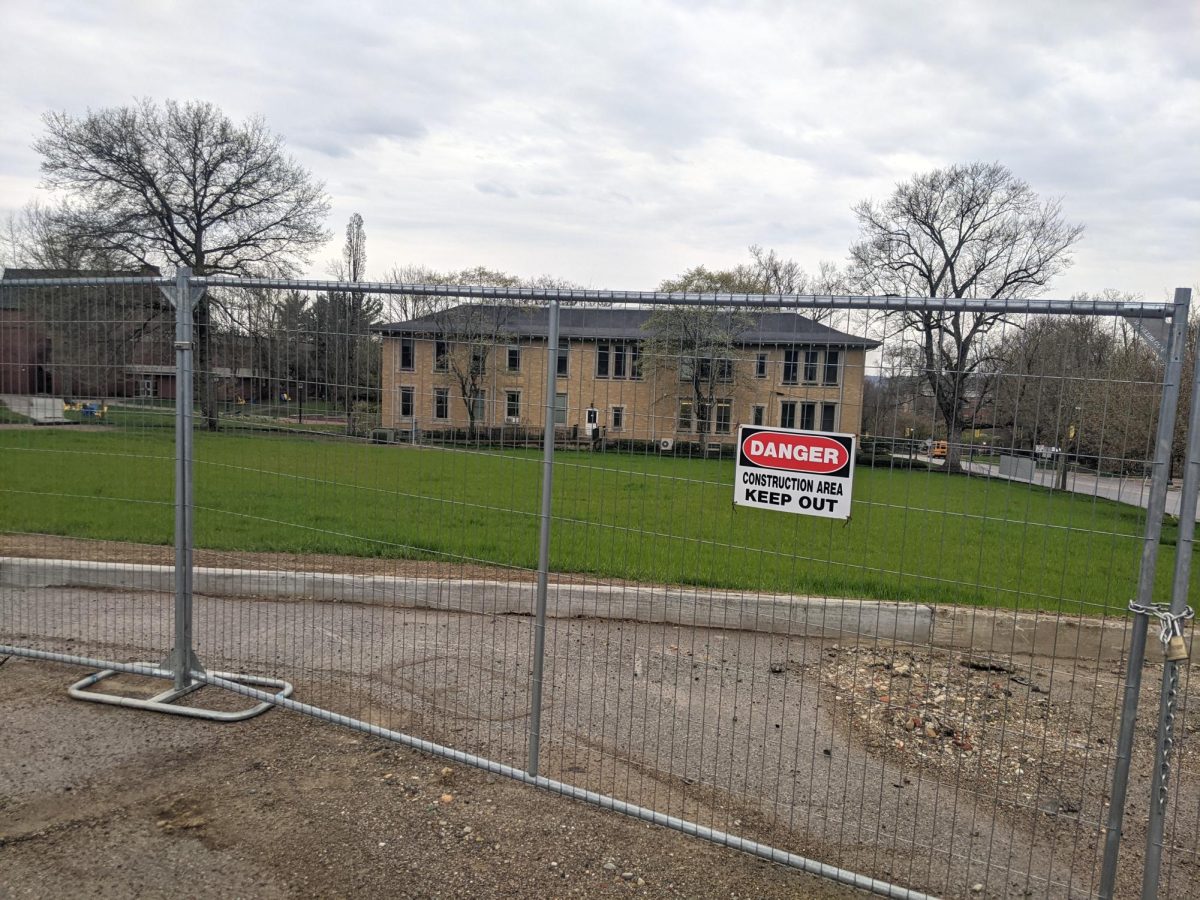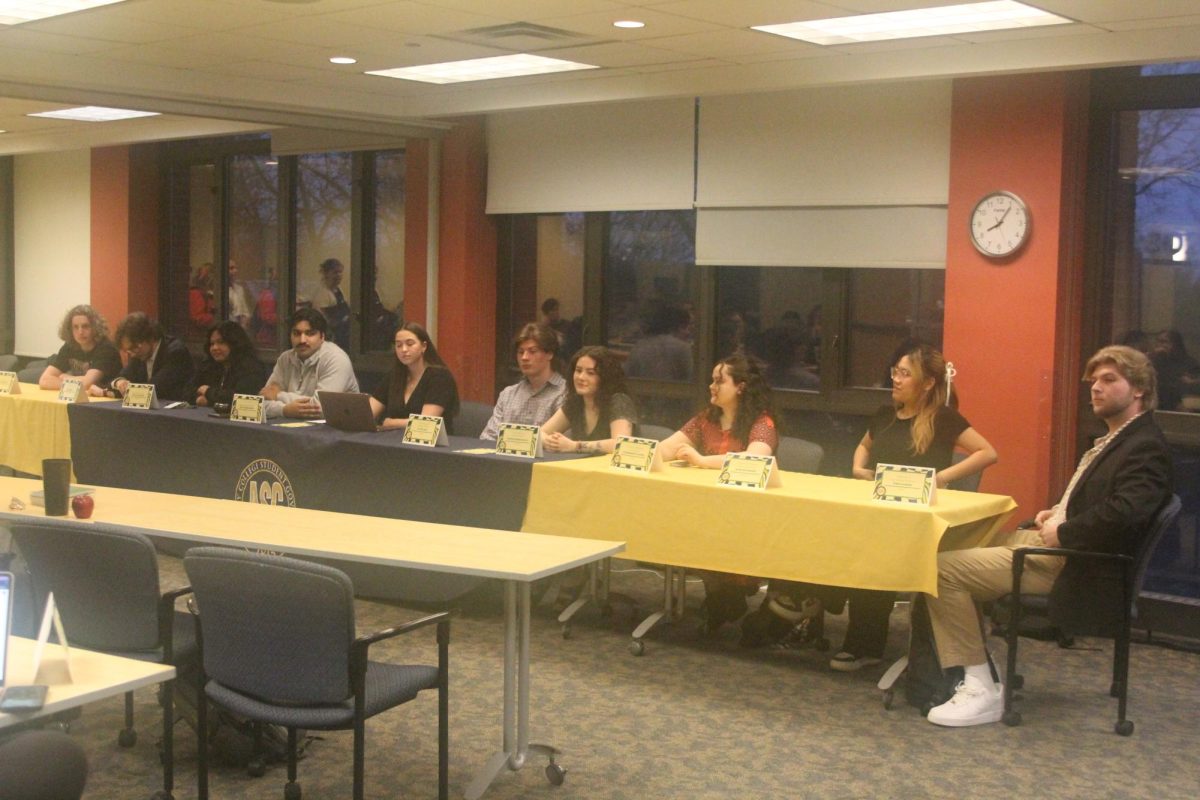By Kerri Barron and Lauren Laurune
Contributing Writers
Ford Chapel was packed on Thursday, April 3, for the third in a series of forums hosted by the Bousson Advisory Group
On Thursday, April 3rd, students, staff, and community members packed Ford Chapel to voice concerns, questions, or support regarding the possible hydro-fracturing that would take place at the Bousson Experimental Forest, discussing potential revenue for the first time
This meeting differed from the previous ones held by the Bousson Advisory Group, as the first two meetings were solely informational. The forum on Thursday allowed for those in attendance to voice their opinions on the potential fracking and to ask the board questions regarding the matter. The forum was moderated by Jack Ubinger, senior vice president of the Pennsylvania Environmental Council.
Some suggestions for spending of potential revenue have been greening the campus or lowering tuition.Ubinger said that the Board of Trustees has not yet said what they would do with the potential revenue, although they are interested in hearing student opinions. The trustees want the students to be able to influence the process in a positive way. Although the board did not indicate what the next step in the decision-making process would be, it did encourage all attendees to voice their opinions and concerns to members of the board, and to continue doing so even after the meeting
Associate Vice President for Advancement, Bruce Whitehair, stated his opinion on behalf of the alumni, “It is a very difficult job to raise money on behalf of the college. We have heard from a number of alumni that would find it difficult if the college walked away from the opportunity to receive money from shale gas facilities. You would turn down 10 million dollars and you ask us to give you money?” He also mentioned that alumni range from executives in oil companies to members of the Environmental Protection Agency, and that no poll has been taken among alumni to show where interests truly lie with regards to drilling.
Supporters advocated that allowing fracking would bring revenue and jobs to Meadville among other benefits. Those opposed voiced concerns such as environmental hazards, the uncertainty of the safety policies, and the dangers of initial economic stimulation that would fade over time, or a “boom and bust” economy.
Nick Christiansen, ’13, completed a senior research project on hydraulic fracturing. He said he believes that the United States is making a mistake by continuing to invest in the research and usage of fossil fuels, such as the natural gas that fracking seeks to extract.
“As a country, we are committing ourselves more and more to using fossil fuels, which down the line are going to screw us over,” said Christiansen.
He added that the research he did for his project revealed an assumption that fossil fuels are the only energy sources possible.
“In a lot of my research I encountered the idea that fracking is not a choice…I don’t want that idea to enter anyone at Allegheny’s mind, that everyone else is doing it so we should do it,” he said.
Many people voiced concern that even considering fracking would have a negative effect on Alelgheny’s reputation as a green college. Kazi Joshua responded to this concern, but also voiced his apprehensions towards hosting the forum. “This is exactly the conversation we need to be having on this college campus… There is a danger, though… that this conversation may fail to meet the expectations, that these conversations are actually meaningful and might shape the outcome… I don’t know if that is true or not, but that is the potential of risk.”
Ubinger followed up with a statement about the impact the conversation would have on the Board of Trustees. “The college has set out to make a process that will allow for everyone to have input… I wouldn’t come up from Pittsburgh if this wasn’t a meaningful process.” He also stated that these conversations were to be constructed into a report, which would be reviewed by the board of trustees.
Senior Annie Krol refuted Ubinger’s statement. “I disagree. I think that no matter what goes on here today, if the trustees have decided that they want to frack we’re going to frack, because they have economic power here, and I don’t believe that if they want something and the rest of us don’t that anything is going to stop them.”
Krol also called attention to a CNN report from a small town in North Dakota that experienced a drastic rise in rapes and assualts upon the influx of blue-collared workers from the deep shale industry. Women’s issues have not been discussed prior to this point in any of the Bousson forums.
Another student opinion that was raised was that hydro-fracking would be a great opportunity for Allegheny to be pioneers of the industry, and possibly set the new standards for environmentally friendlier fracking through execution and regulation. This could develop a reputation for the college as a forerunner in the drilling industry.
The board did not say what the next step in the process would be, but encouraged the audience to keep submitting their opinions via the campus feedback form on the Bousson Advisory website. The advisory group is composed of professors from the economics, environmental science, biology, and geology departments, as well as professionals in finance, geology, and three students with various campus involvements.







